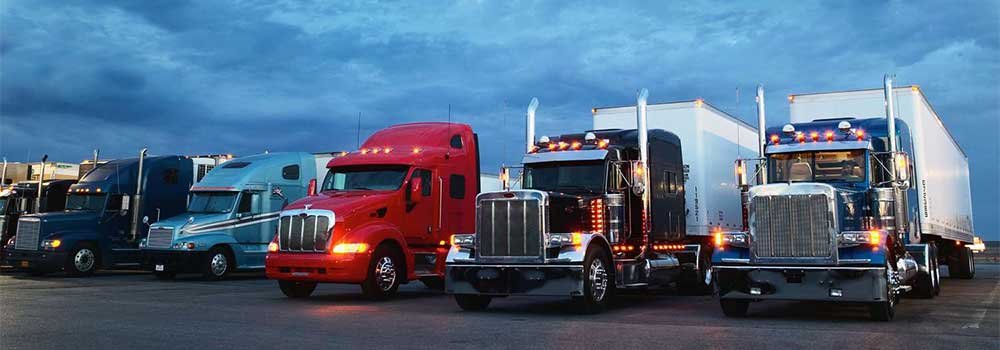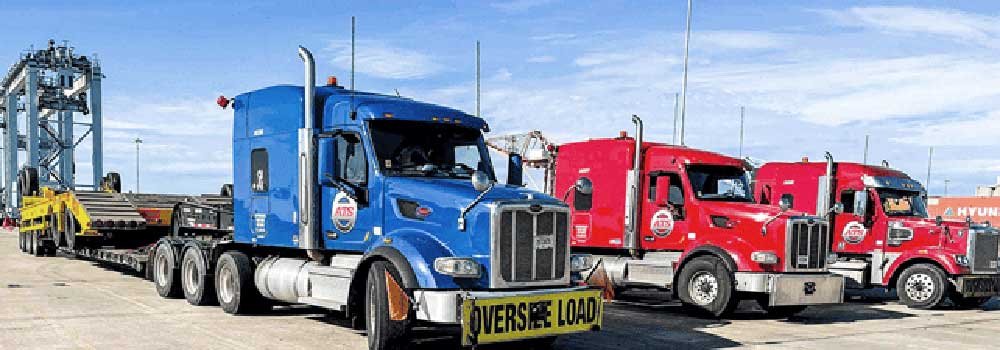To transport products legally, a trucking license is required. However, several potential snares along the way might lengthen the procedure, cost more money, or even land you in legal hot water.
Smooth hauling operations depend on your ability to sidestep typical permit hiccups. In this article, we’ll discuss how to get the necessary permits for trucking company and avoid any potential hazards that may arise throughout transportation.
Understanding The Importance Of Trucking Permits

Permits to haul freight by truck are required to carry products legally on public roadways. They are essential for running a legal and safe transportation business and are given by state and federal transportation agencies. If your cargo is too large or heavy to carry legally, or you must move it through prohibited areas, you will need a trucking permit.
Trucking companies risk heavy fines and perhaps legal action if they operate without authorization. Trucking companies, for instance, might face expensive repairs and legal action if they violate weight limitations without the proper permission, damaging roads, bridges, and other infrastructure.
Valid trucking licenses are also essential for the protection of the public. Carriers are monitored to ensure they follow all safety regulations, such as securing cargo, always keeping lights on, and not exceeding speed restrictions. In addition to aiding in enforcing environmental laws, permits allow transportation authorities to keep tabs on the volume of trucks on the road.
Common Trucking Permit Pitfalls

Potential snags might arise from the lengthy and complicated process of obtaining a trucking license. Application errors and omissions are prevalent issues. Carriers risk delays and additional expenses if their permission applications are erroneous or incomplete.
Another typical mistake is ignoring the need to acquire the proper permits. Every permit has unique constraints, such as weight and distance limitations and safety measures, and carriers must be familiar with these details. Penalties, fines, and legal action may result from a failure to follow the terms of a permit.
Failure to properly display permits, comply with permission requirements, and maintain current permits are further hazards. The onus is on carriers to keep permits up to date, adhere to any limitations stipulated by authorities, and prominently display permits in plain view.
How To Avoid Trucking Permit Pitfalls
Carriers should invest in a comprehensive permit management system to avoid trucking permit pitfalls. Drivers should get frequent training on permit compliance, and there should be a mechanism to track when permits expire and who has to renew them.
One of the keys to avoiding problems with permits is keeping up with the latest rules and standards. Transport companies should comply with the terms of each permit they are granted by constantly reviewing its terms and conditions.
It is also important to prevent being pulled over by properly displaying permits on cars. Permits must always be displayed in plain view in the cars. They must also check the expiration dates and permission restrictions to ensure everything is in order.
The Benefits of Avoiding Trucking Permit Pitfalls
Companies may save money, enhance productivity, and boost profits by avoiding common errors in the shipping permit process. Carriers can save money and use resources better if they can avoid costly penalties and legal action.
Lowering costs associated with infrastructure and cargo repairs may increase profitability if potential permit issues are avoided. Road, bridge, and other infrastructure damage may be avoided by strictly adhering to permit restrictions, including weight limitations, and properly securing cargo.
The risk of cargo damage or loss may be reduced by properly complying with permit requirements, leading to cheaper insurance premiums and more customer satisfaction.
Staying up to date on permit restrictions and requirements, keeping detailed records of permits and compliance, and displaying permits prominently on vehicles are ways to prevent potential issues while getting permits for trucking company. Planning routes that adhere to permit limits is likewise crucial, as is discussing these matters with shippers and receivers.
Conclusion
While trucking licenses are essential to running a smooth transportation business, they are not without their risks. Trucking firms may improve their operations, lower the likelihood of fines and legal action, and boost their bottom line if they take the time to learn about the significance of permits, recognize typical dangers, and apply strategies for avoiding permit difficulties.